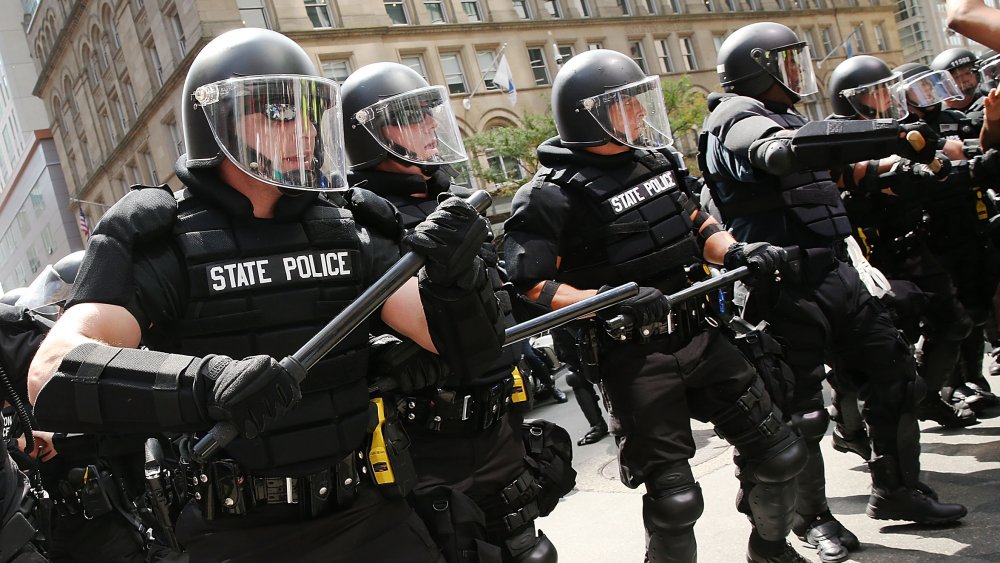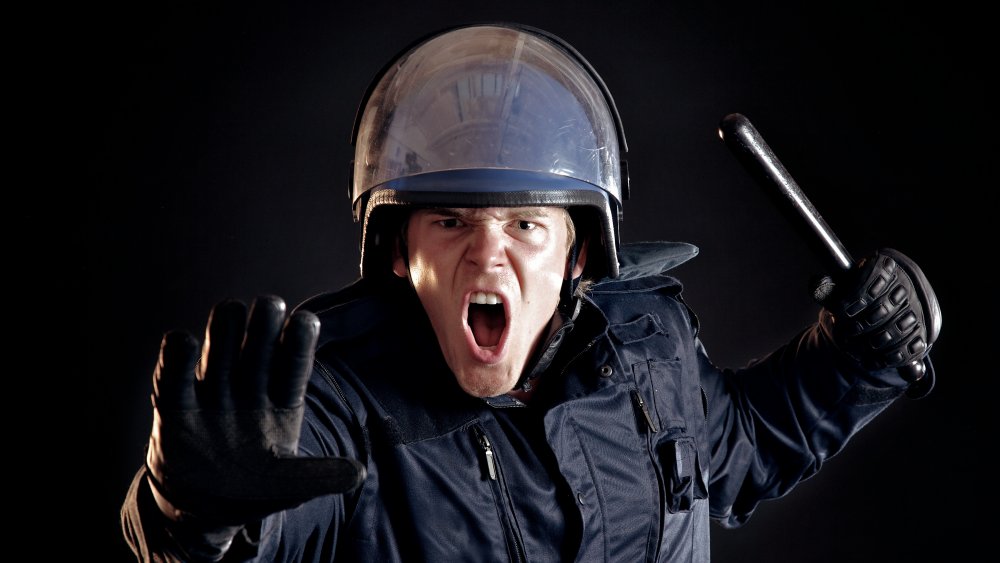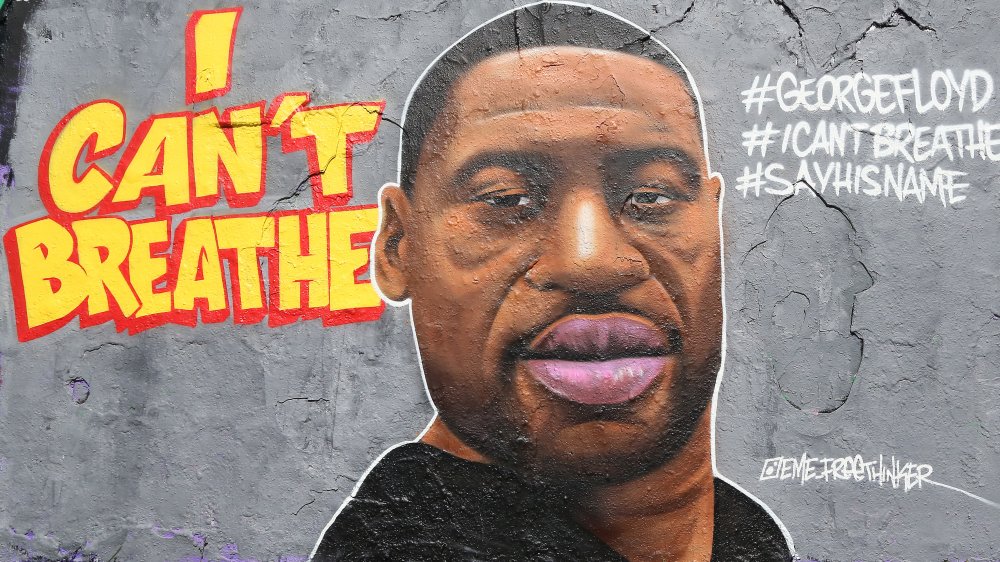What Is Qualified Immunity And Why Do Government Officials Have It?
The Peter Parker school of ethics teaches that with great power comes great responsibility. Unfortunately, Parker got that lesson from his Uncle Ben, who was a carnival barker, according to the Marvel Encyclopedia New Edition. If Spider-Man had the sense to consult a lawyer, he would know that U.S. courts often hold people with great power less responsible for wrongdoing, especially public officials. That legal protection is called qualified immunity.
Cornell Law School's Legal Information Institute explains that "qualified immunity balances two important interests — the need to hold public officials accountable when they exercise power irresponsibly and the need to shield officials from harassment, distraction, and liability when they perform their duties reasonably," as outlined in the Supreme Court case of Pearson v. Callahan. In the abstract, that sounds like a great way to navigate a legal gray area. Of course, the devil is in the details, and officials have a hell of a lot of leeway when it comes to violating private citizens' rights.
Qualified immunity dictates that a public official can only be sued or prosecuted for violating a "clearly established" right as defined in a statute or the Constitution. If an obvious act of misconduct — for instance, police brutality — doesn't exactly match the scenario defined as a rights violation, the cop is practically untouchable.
Even cops that obviously violate your rights can have qualified immunity
To get a sense of how clear a "clearly established" right has to be, let's look at the case of Malaika Brooks, who was 7 months pregnant when a Seattle officer stopped her for speeding in 2004. Quoting court documents, ABC reports that Brooks refused to sign a speeding ticket because she falsely assumed it was a confession of guilt. Two more officers arrived, escalating the situation. They threatened to arrest her for refusing to sign the citation, but she refused to budge and said she needed to pee. Police twisted her arm behind her back and tased her three different times — once in her thigh, once in her arm, and then in her neck.
Brooks sued the officers for violating her Fourth Amendment protection against excessive force. A tribunal court ruled that police had indeed violated her constitutional rights yet still granted them qualified immunity. Why? The Seattle Times explains that laws concerning the use of excessive force with a taser hadn't been clearly established in 2004. So the crooks were off the hook.
This, unfortunately, is par for the course. Reuters examined 252 cases of alleged excessive force by police between 2015 and 2019. In more than three dozen of them, qualified immunity shielded officers from prosecution for behaviors deemed unlawful.
What this could mean for the George Floyd case
Qualified immunity could have bleak implications in the case of George Floyd, who was handcuffed and helpless when Minneapolis police officer Derek Chauvin kneeled on his neck for 8 minutes and 46 seconds, per USA Today. If there is no legal precedent, statute, or constitutional protection barring the use of excessive or deadly force under those highly specific circumstances, there might not be much that could be done to hold Chauvin accountable.
A jarring article by law professor and Cato Institute vice president for criminal justice Clark Neily explains the situation this way: "Thus, if Mr. Floyd's family wants to sue the officer who took his life, they will need to find an existing case from the Eighth U.S. Circuit Court of Appeals holding that a police officer may not kneel on a unresisting suspect's neck, ignoring his pleas for help, until he passes out. If no such case happens to be on the books, their case will be summarily tossed out of court."


